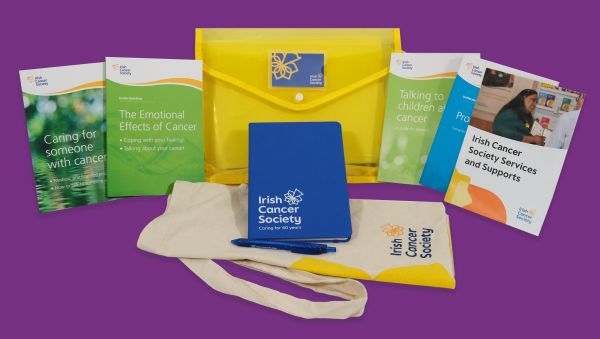Laryngeal cancer
Treatment
How is laryngeal cancer treated?
Radiotherapy is the most common treatment for laryngeal cancer, but there are a number of other treatment options too. Your medical team will recommend the best option for you.
Radiotherapy is the most common treatment for laryngeal cancer. It involves using high-energy X-rays to kill the cancer cells.
Read more about radiotherapy for laryngeal cancer.
Laser or endoscopic surgery can be used for small, early-stage cancers of the larynx (stage 1 or 2). You may need to have your larynx partially or completely removed if the cancer is large. Sometimes surgery is used to remove any cancer remaining after radiotherapy treatment.
Read more about surgery for laryngeal cancer.
This is the use of drugs to kill or control the cancer cells. Many laryngeal cancer patients receive a combination of chemotherapy drugs. Chemotherapy can also be given during radiotherapy or before or after radiotherapy and surgery.
Read more about chemotherapy.
Like chemotherapy, targeted therapies are drugs that interfere with the growth and spread of cancer. Unlike chemotherapy, targeted therapies work by targeting the cancer cells only but do not affect a person’s normal cells. They are usually used to treat later-stage laryngeal cancer, often together with radiotherapy.
Read more about targeted therapies.
If you are a smoker or a heavy drinker, it is best to stop. This will increase the chance of your treatment working fully. It will also reduce the risk of your cancer returning after treatment. If you need support with quitting smoking, go to www.quit.ie
Clinical trials
If a treatment looks like it might be helpful, it is given to patients in research studies called clinical trials. Trials may be taking place at the hospital you are attending. If you are interested in taking part, talk to your doctor. If a trial is been carried out at a different hospital you still have the right to participate if you fit the inclusion criteria. Your consultant can tell you if the trial may suit you or not.
Learn more about clinical trials.
Coping with side-effects
The type of side-effects you get will depend on the type of treatment, the dose, the duration and your own general health.
Your doctor or nurse will discuss any possible side-effects with you before your treatment. Some treatments may cause nausea, vomiting, diarrhoea, constipation, loss of appetite and hair loss. A lot of treatments cause fatigue.
Treating metastatic (secondary) laryngeal cancer
Metastatic or secondary cancer means the cancer has spread to other parts of your body.
If you have metastatic laryngeal cancer, your doctor will aim to slow down the growth of the cancer and reduce or relieve any symptoms you have. Treatment includes surgery, chemotherapy, targeted therapies and radiotherapy. Or you may be suitable for a clinical trial. You may also have treatment to manage any symptoms from your cancer. This is called symptom control or palliative care.
Read more about metastatic cancer.
Continue reading about laryngeal cancer




Get help & support

Support Line
Free support pack


